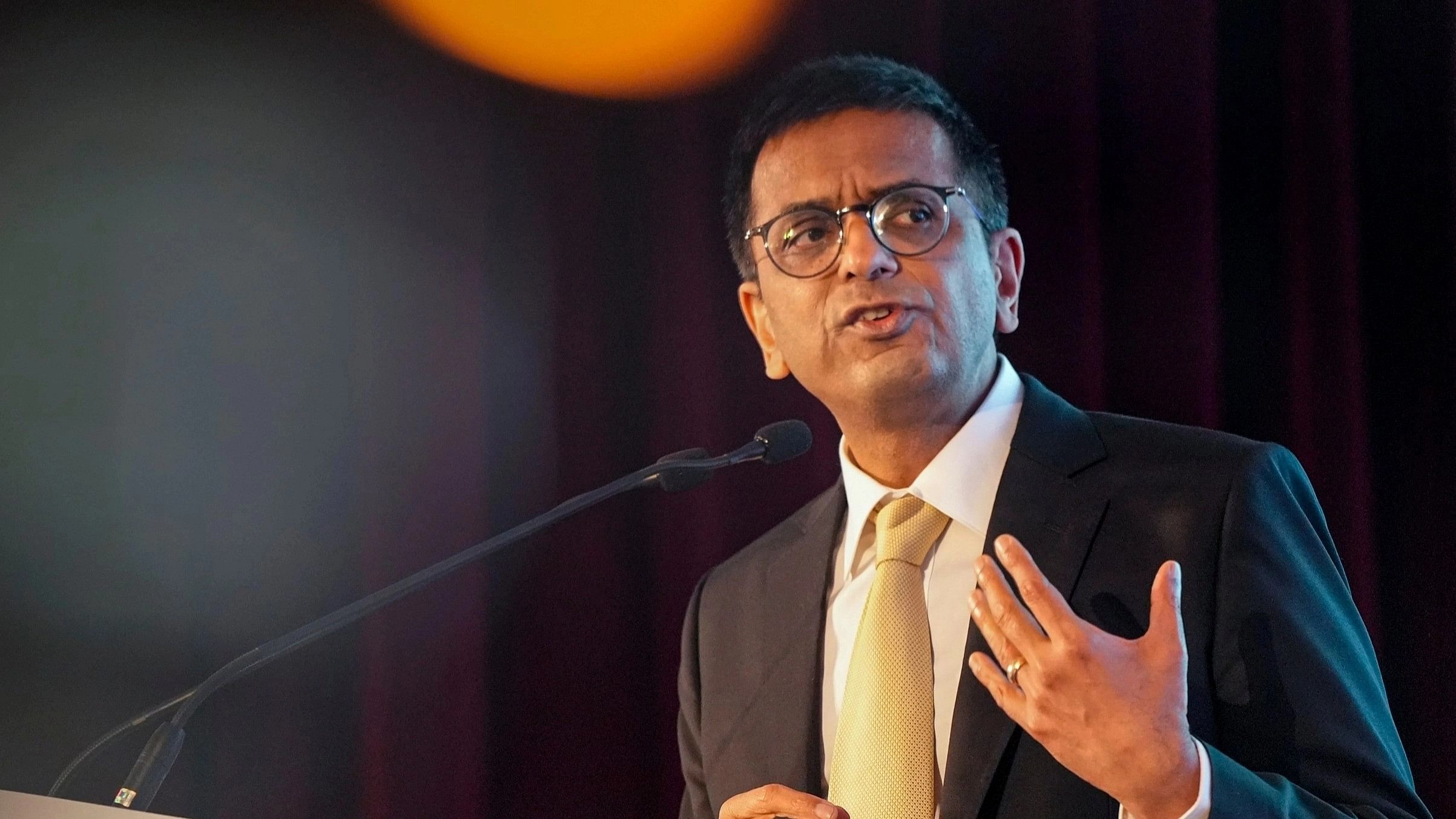
Chief Justice of India (CJI) D Y Chandrachud.
Credit: PTI Photo
New Delhi: Chief Justice of India D Y Chandrachud on Saturday said a society which does not encourage its citizens to critically think, question the powers that be and engage in nonconformist democratic discourse will fail to progress. "In a democracy, the majority will have its way but the minority must have its say," he asserted.
"While social harmony among citizens is a pre-requisite to democracy, it cannot be manufactured by removing conditions under which dissent may be freely expressed. A society is often known by its great dissenters because dissenters inform us of the location and direction of a democracy," he said.
The CJI was speaking on 'Democracy, Debate and Dissent' in the Justice Keshav Chandra Dhulia Essay Competition at Forest Research Institute, Dehradun.
He said acts of dissent in a democracy, even those which are unpopular and unacceptable, provide windows to the future.
"In a diverse democracy, it is quite likely that certain opinions are heftier for reasons other than their intrinsic merit. There will of course be outcomes that are favourable to some more than others. If we truly manage to incorporate all streams of ideas into our decision-making processes, that by itself will not lead to outcomes that are acceptable to every participant," he said.
However, the answer lies in what these outcomes represent, he added.
The CJI said for all citizens to feel free in a democracy, the State must side with the weaker population which may be a numerical or a social minority, and this may at first appear to be at odds with the democratic principle of majority rule.
“However, a mere rule by majority can be established by many forms of government. The beauty of a democracy is the sense of moral status with which all citizens can participate in a country and the consensus in its decision-making. In a democracy, the majority will have its way but the minority must have its say,” he said.
Justice Chandrachud said a democracy, in order to be more than a mere approximation of majoritarian preferences, must engage with all its stakeholders. He added that democracies are messy and imperfect, but inherent in them are the postulates of justice, liberty, equality, and fraternity.
He said deliberation is the difference between a majoritarian decision that is foisted on an unwilling electorate and a decision that the people are willing to accept, engage with, and hopefully alter one day.
The CJI said that beyond the Constitution, to engage meaningfully in a discourse that is governed only by the merits of the arguments, we need to strike a delicate balance between diversity of opinion on the one hand and agreement to basic rules of engagement on the other.
He added that at its most basic, democracy ensures that people get to vote in periodic elections and that every person has one vote and every vote has one value.
“Mere appeal to voting and governance by those elected through periodic elections will remain an incomplete endeavour in the democratic experiment without upholding these postulates,” he said.
Justice Chandrachud said these postulates are upheld in two ways, first, by robust institutions that carry out democratic functions, and second, by introducing procedural guarantees which prevent seepage of bias and unfairness in the process of decision-making. Additionally, democracy requires constant dialogue between differing opinions and civil society organisations to fulfil the aspirations of the people, he emphasised.
